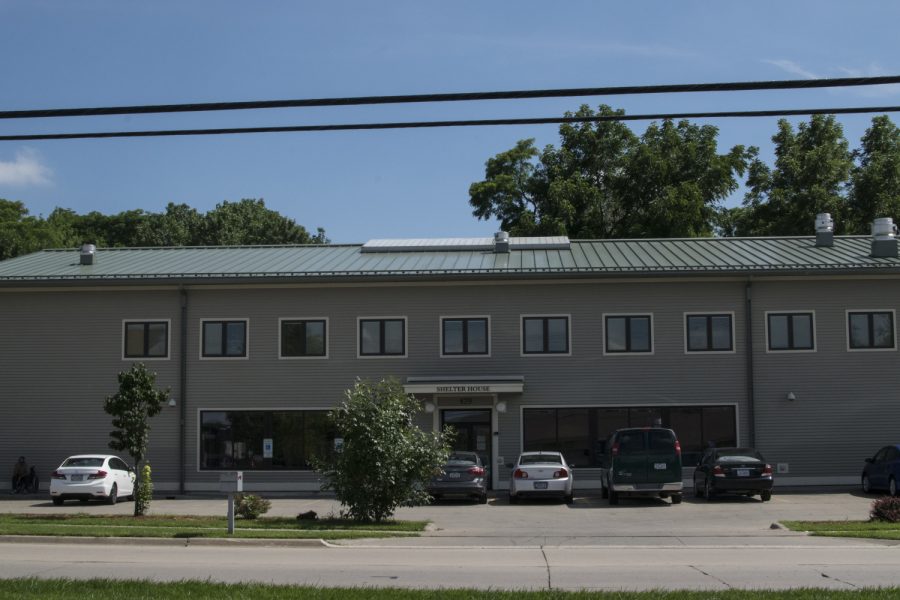Partnership between Shelter House, Housing Authority aims to end Iowa City-area homelessness
Cross Park Place, a 24-unit low-income apartment building, is the setting for a partnership between two local housing groups.
January 16, 2019
A new partnership between two Iowa City housing groups aims to provide something that many take for granted — access to housing.
The Iowa City Housing Authority has partnered with Shelter House by providing financial assistance to Cross Park Place, a low-income housing building in Iowa City. Previously, the building’s 24 units used tenant-based vouchers, but they will be converted to project-based vouchers.
Angelica Vannatta, Shelter House’s development director, said there is an important distinction between tenant-based and project-based vouchers.
Tenant-based vouchers, she said, are given to families in the private rental market. Project-based vouchers are tied to a specific unit or property.
In the case of Cross Park Place, tenants will pay the difference between the actual rent charged by the building and the amount subsidized by the voucher.
Initially, Shelter House received $2.7 million from the Iowa Finance Authority and $463,000 in funds from the Housing Trust Fund of Johnson County to construct the 24-unit building.
“Our ultimate goal is to end chronic homelessness — we truly believe that housing is a human right, and there should be no obstacles standing in the way of people getting a home,” Vannatta said.
Cross Park Place program manager Laura Iosbaker said that even though the project provides assistance to those in need, there are still stipulations to residency.
“Project-based vouchers provide guaranteed rental assistance for each unit since they’re tied to the project and not the tenant; however, all tenants receiving project-based assistance are still required to make rent payments equal to 30 percent of their income,” Iosbaker said in an email to The Daily Iowan.
RELATED: ‘Unconditional’ Shelter House housing project near completion
Tenants can live in the units as long as they uphold their leases, Iosbaker said, and they can stay “as long as they choose.”
Housing Administrator Steve Rackis said he believes housing-first projects have the ability to give people who experience chronic homelessness a sense of place. Chronic homelessness, as defined by the Department of Housing and Urban Development, occurs when a person is without a home for 12-consecutive months or experiences four instances of homelessness [totaling 12 months] in three years.
“I think this particular circumstance, because it’s a housing-first project, is unlike some of the things that have been done in the past,” he said. “In the past, people have tried to ‘deal’ with the homeless population with services first, but this is the opposite. We’re saying, ‘Let’s get them a place to live, and then focus on those services’ — I think that having the project based on vouchers makes the project much more equitable.”
Rackis said he hopes more affordable-housing initiatives are adopted across the city, state, and country.
“Affordable housing is an issue all across the country,” he said. “It’s particularly an issue in communities where there are college campuses. If you want to get someone economically engaged, the best way to do that is stabilize the family first.”



